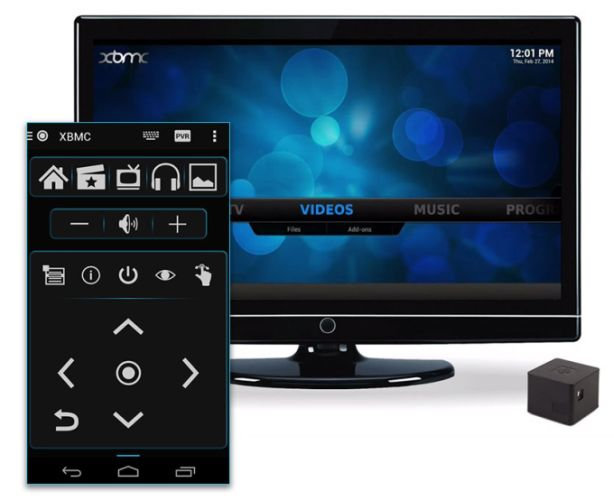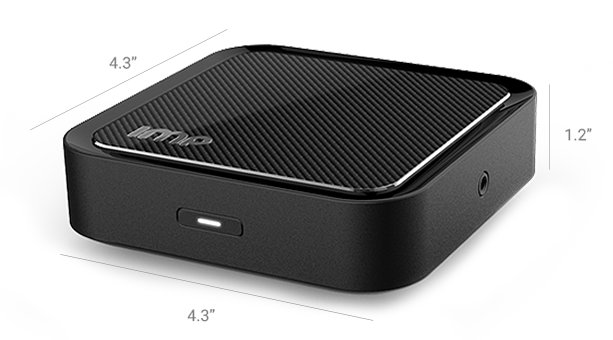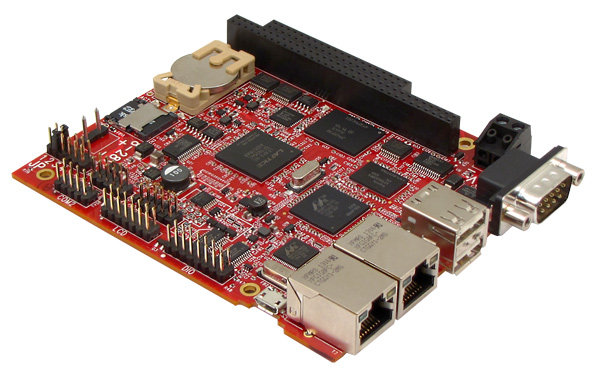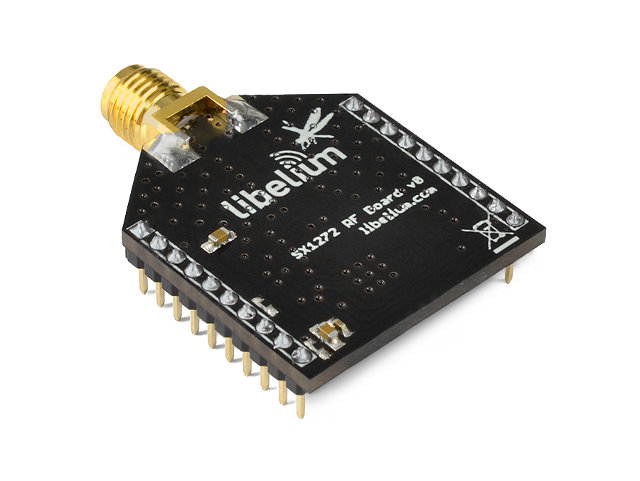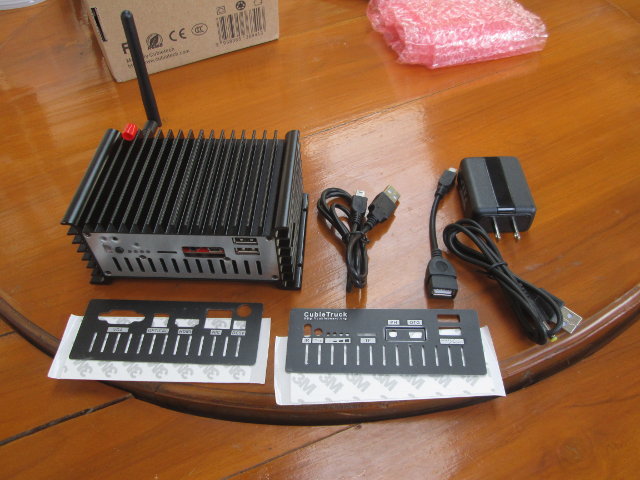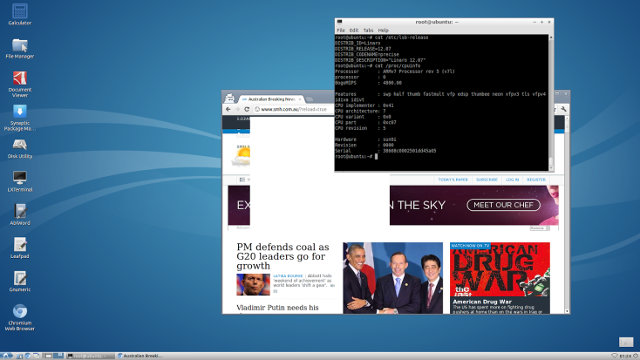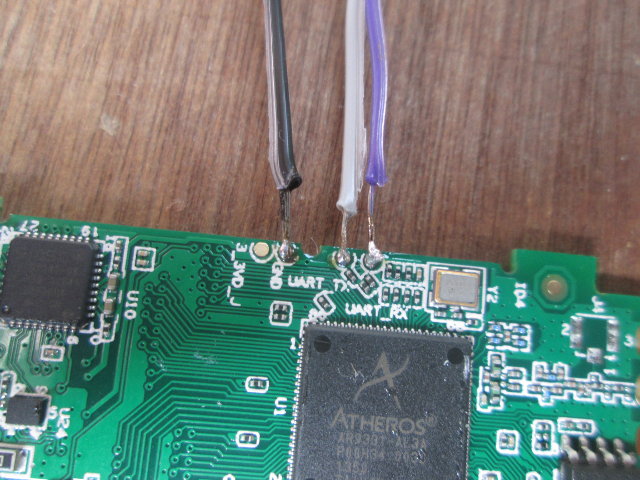Last year, Solidrun launched their Cubox-i mini PCs powered by Freescale i.MX6 single, dual or quad core processor, and running Debian, OpenSUSE, Android 4.4, or various XBMC based Linux distributions. The company has now announced a new product called CuboxTV, that on surface looks similar to their Cubox-i4Pro mini PC with a quad core processor, but instead of running Linux desktop distributions, or Android, it’s pre-loaded with OpenELEC Linux distribution running Kodi 14. CuboxTV specifications: SoC – Freescale i.MX6 Quad with four Cortex A9 core up to 1GHz, and Vivante GC2000 3D GPU System Memory – 1GB SDRAM @ 1066 MHz Storage – 8GB internal storage + micro SD interface Video Output – HDMI 1.4b, 3D support Video Decoders – MPEG-4 ASP, XVID, H.264 HP, H.263, MPEG-2 MP, MJPEG BP, VP8, Sorenson-H263. Video Encoders – MPEG-4 SP, H.264 BP, H.263, MJPEG BP Image Codecs – JPEG, BMP, GIF, PNG. Audio […]
Imp Computer is an Ubuntu 14.04 mini PC Based on ODROID-U3 Development Board (Crowdfunding)
Hardkernel ODROID-U3 is a development board powered by Samsung Exynos 4412 quad core Cortex A9 processor that’s both small and cost effective at $59, not including required storage and shipping. An Israeli start-up named Imp Computer has now launched a mini PC of the same name, based on ODROID-U3 board, and running Lintux Ubuntu 14.04 with Cinnamon based Imp Desktop environment, and various pre-installed software packages like Chrome and Firefox web browsers, Kodi/XBMC, etc.., and somehow Microsoft Office with Word, Excel, PowerPoint, and Outlook are also listed, which does not seem right on an ARM Linux machine, but they are apparently using Microsoft Office Online to achieve this feast. Imp computer specifications: SoC – Samsung Exynos 4412 Prime @ 1.7 Ghz with ARM Mali-400MP4 GPU @ 440MHz System Memory – 2GB @ 880MHz Storage – 8 or 16 GB internal storage (micro SD card) USB – 3x USB 2.0 Host […]
Technologic TS-7250-V2 Industrial Grade Embedded Computer Features Marvell PXA166/PXA168 Processor
Technologic Systems, as US based embedded systems solutions company, has announced availability of their TS-7250-V2 industrial grade PC/104 single board computer powered by Marvell PXA166 or PXA168 ARMv5 processor, with 512 MB RAM, 2GB eMMC SLC flash, single or dual Ethernet, and an optional Lattice FPGA with up to 17k LUT (Look-up Tables) among other features. They also have two enclosures namely TS-ENC720 (1x RJ45 port), and TS-ENC720-2ETH (2x RJ45 ports) for the boards. TS-7250-V2 technical specifications: Processor (one of the two) Marvell PXA166 Sheeva ARMv5 processor up to 800 MHz Marvell PXA168 Sheeva ARMv5 processor up to 1066 MHz FPGA – 17 KLut Lattice LFXP2-8E FPGA System Memory – 512 MB RAM Storage – micro SD card socket + optional 2GB eMMC flash + optional full size SD card socket Connectivity – 1x or 2x 10/100 Ethernet ports, USB – 2x USB HS host ports, 1x micro USB device […]
Semtech LoRa SX1272 RF Module Enables Up to 30 KM Wireless Range for Arduino, Raspberry Pi, Waspmote, and More
Libelium’s Waspmote is a board based on Atmel ATmega1281 MCU that interfaces with over 80 sensors, and various wireless communication modules, and targets professional wireless sensor network applications such as irrigation systems, smart metering, smart cities, smartphone detection, building automation, and so on. They have some professional kits for over 3,000 Euros including training, but a more affordable Starter Kit is also available for 199 Euros on Cooking Hacks. But I’m not going to cover Waspmote in details today. I just mention it because of an article on embedded.com mentioning compatibility with a Libelium / Semtech LoRa SX1272 RF module delivering up to 30km range in ideal conditions (and usually 22+ km range in LOS), and about 2km range in urban settings. I previously featured XBee-PRO 900HP RF Module with a 45km range, so the Semtech module is just another option, and it works not only with Waspmote, but also the […]
CubieTruck Metal Case Unboxing and Disassembly
CubieTruck Metal Case is a kit comprised of CubieTruck (aka CubieBoard 3), a 128GB SSD, a 5,300 mAh battery, a power adapter, and various cables. In case you are not familiar with CubieTruck, it’s a development board by CubieTech, based on Allwinner A20 dual core ARM Cortex A7 processor with 2GB RAM, 8GB NAND flash, a SATA connector, HDMI & VGA outputs, Gigabit Ethernet, 2 USB host ports, and a mini USB OTG port. CubieTech decided to sent me a kit, as it was featured on CNX Software, and today, I’ll show what’s exactly is inside the kit since the product description is not 100% clear. I’ve been told it’s pre-installed with Lubuntu, so in a separate post next week, I’ll try Linux, report on the SSD performance, and check the battery UPS function, and possibly life on a charge. CubieTruck Metal Case Unboxing I’ve received the kit in a […]
How-to Install Ubuntu on Allwinner A80 Powered pcDuino8 and A80 OptimusBoard
Last month, pcDuino released Android 4.4 and Ubuntu images for pcDuino8 board powered by Allwinner A80 octa core processor, and since it’s the same board layout as A80 OptimusBoard, I decided to try it out, but it failed as the update script would try to flash it to a partition that’s too small for the root file systems. But last week, Ian Morrison and Minidodes gave it another try, and successfully booted Ubuntu, or more exactly Lubuntu, on A80 OptimusBoard. Both their screenshot reports sun9i platform in /proc/cpuinfo, so that’s definitely Allwinner A80, but only one core is shown. I’m not sure if it’s because the other are idled and don’t show, or for some reasons, the kernel only supports one core at this stage. Anyway, here’s how they did to install Lubuntu: Flash the kernel (pcduino8_kernel_livesuit_20141008.img) with PhoenixCard or Livesuit first. See instructions to use Livesuit with A80 OptimusBoard. […]
Zsun SD111 Is Now “Officially” an Hackable Wireless Flash Drive
Zsun SD11x are Wi-Fi flash drives for 8 to 128 GB eMMC, alternative to Sandisk or Kingston. Yesterday, I soldered the UART pins to Zsun SD111 (8GB) flash drive to access the serial console, but I did not manage to enter the terminal as it was password-protected. I posted my results anyway, as I was convinced I would get some clever ideas from my readers, some of which appeared to be a little time consuming, but Zoobab offered a simple solution that consisted in changing the boot parameters, by replacing /sbin/init by /bin/sh. The first step is to interrupt the boot by pressing space or another key, in order to access U-boot. Now we can check the U-boot environment ar7240> printenv bootargs=console=ttyS0,115200 root=31:02 rootfstype=jffs2 rw init=/sbin/init mtdparts=ar7240-nor0:64k(u-boot),64k(u-boot-env),6720k(rootfs),1216k(uImage),64k(NVRAM),64k(ART) bootcmd=bootm 0x9f6B0000 bootdelay=4 baudrate=115200 ethaddr=0x00:0xaa:0xbb:0xcc:0xdd:0xee ipaddr=10.168.168.1 serverip=10.168.168.10 stdin=serial stdout=serial stderr=serial ethact=eth0 Environment size: 361/65532 bytes Let’s keep everything the same, except the init, […]
Zsun SD111 Wi-Fi Flash Drive Hacking Tentative
Two days ago, I reviewed Zsun SD111 a 8GB Wi-Fi flash drive based on Atheros AR9331, and I discovered the telnet port was open, but I could not access it because none of the standard username and password combinations (root/root, admin/admin, root/admin, etc…) would work, which is actually a good thing. However, as I opened the stick, the serial pins were clearly marked, so today I’ve soldered some Dupont wires to access the serial console. In order to open the stick, you need a rigid sharp object to push the top cover via the neck strap hole, as shown below, and another tool (mine looks similar to a scalpel) to help popping the cover up. Then I connected the three wires to a USB to TLL debug board, connected it to my PC, started minicom (115200 8N1), and pressed the power button. I could see U-Boot 1.1.4 message, so it […]


